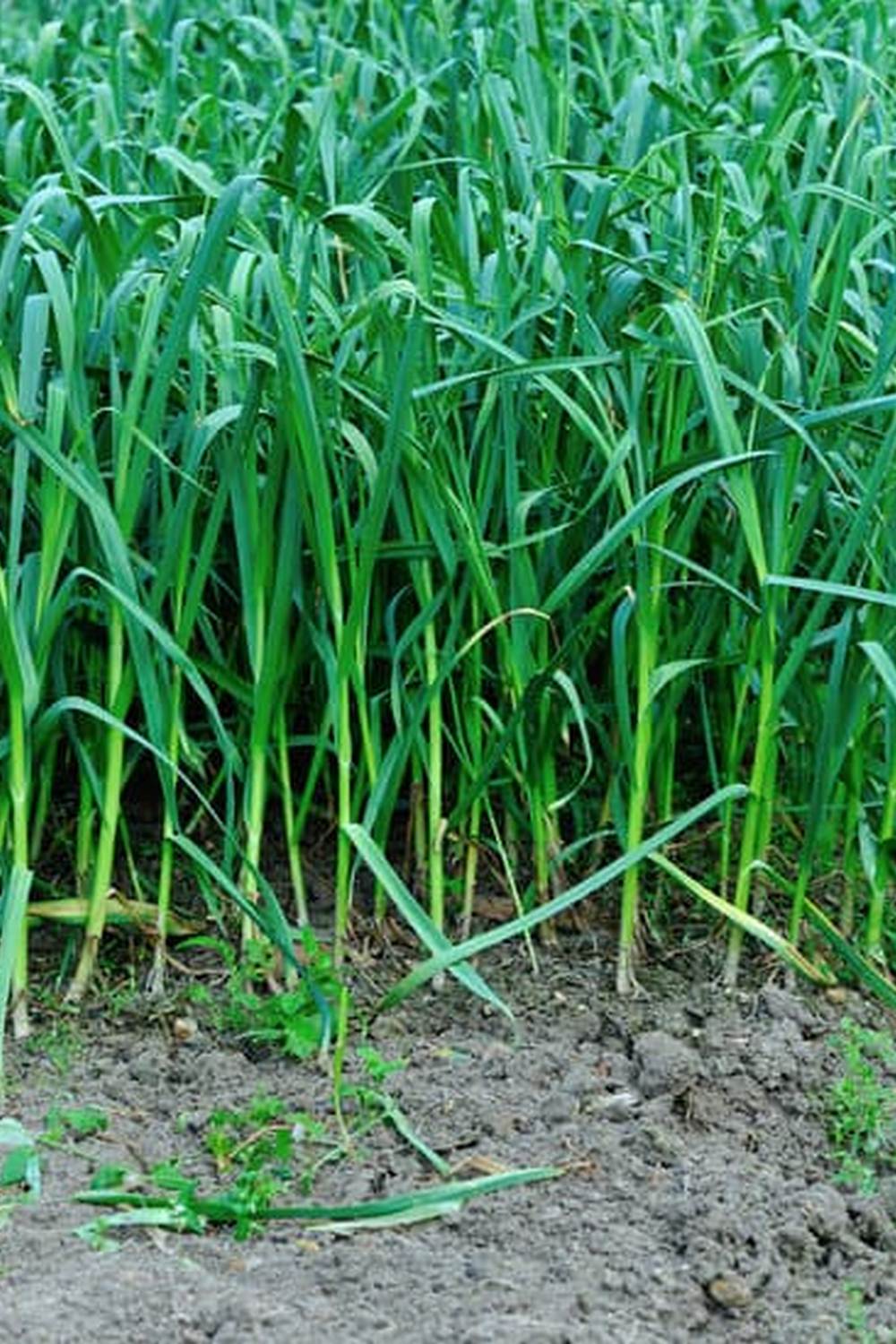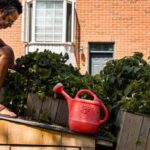Are you wondering if dog poop can be beneficial for your vegetable garden? Many gardeners are always looking for natural and organic fertilizers to help their vegetables grow. In this article, we will explore the potential benefits and risks of using dog poop as fertilizer for your vegetable garden, as well as provide alternative options and guidelines for safe use.
Natural fertilizers play a vital role in maintaining the health and productivity of vegetable gardens. They provide essential nutrients to the soil, promote healthy plant growth, and contribute to the overall sustainability of the garden. The use of natural fertilizers also aligns with organic gardening practices, which prioritize environmentally-friendly and chemical-free methods of cultivation.
One natural fertilizer that has been gaining attention is dog poop. While it may seem unorthodox, dog poop contains valuable nutrients that can benefit vegetable gardens when used properly.
In the following sections, we will delve into the nutrient content of dog poop, its potential benefits, as well as the risks associated with its use in vegetable gardens. We will also discuss how to safely use dog poop as fertilizer and explore alternative options for those who may be hesitant to incorporate it into their gardening routine.
The Benefits of Using Dog Poop as Fertilizer
Using dog poop as fertilizer in vegetable gardens is a topic that often raises eyebrows, but the truth is, dog poop can be a valuable source of nutrients for your plants. In fact, many gardeners have successfully used dog poop as fertilizer to provide essential nutrients to their vegetable gardens. This section will explore the benefits of using dog poop as fertilizer and how it can help improve the health and productivity of your garden.
Nutrient Content of Dog Poop
Dog poop is rich in nitrogen, potassium, and phosphorus, which are essential nutrients for plant growth. These nutrients can help improve soil fertility and promote healthy root development in vegetable plants. When properly composted, dog poop can release these nutrients slowly over time, providing a steady supply of nourishment for your vegetables.
Benefits for Vegetable Gardens
The nutrient content of dog poop makes it an effective natural fertilizer for vegetable gardens. Nitrogen promotes leafy growth, potassium aids in fruit production, and phosphorus supports root development. When used in moderation and properly composted, dog poop can contribute to healthier plants and higher yields in your garden.
Enhancing Soil Health
In addition to providing essential nutrients for plant growth, using dog poop as fertilizer can also help enhance overall soil health. The organic matter in dog poop can improve soil structure, water retention, and microbial activity. This can create a more fertile environment for your vegetable plants to thrive.
By understanding the nutrient content of dog poop and its benefits for vegetable gardens, you can make an informed decision about whether to use it as a natural fertilizer in your own garden. However, it’s important to also consider the potential risks and drawbacks associated with using dog poop as fertilizer before making this choice.
Potential Risks and Drawbacks
Using dog poop as fertilizer in vegetable gardens can have potential risks and drawbacks that need to be carefully considered. While it is true that dog poop contains valuable nutrients that can benefit the soil, there are also health hazards and risks associated with using it as fertilizer.
The main concern with using dog poop as fertilizer is the potential presence of harmful pathogens and bacteria. Dog feces can contain parasites, bacteria, and viruses that can pose a risk to human health if not handled properly. These pathogens can contaminate the soil, water, and ultimately the vegetables grown in the garden. This is why it is important to take precautions when considering using dog poop as fertilizer.
To safely use dog poop as fertilizer in vegetable gardens, it is essential to follow proper guidelines and tips. One of the most effective ways to mitigate the risks associated with dog poop is through composting. Composting dog waste at high temperatures (above 140°F or 60°C) for an extended period of time can kill off most pathogens and make the resulting compost safe for use in vegetable gardens.
In addition to composting, it is important to keep dog waste away from edible parts of plants, such as roots and leaves. This means applying the composted dog waste to non-edible parts of the garden or using a barrier between the compost and edible plants.
It is also crucial to wash vegetables thoroughly before consuming them to reduce any potential health risks. By following these safety measures, it is possible to effectively utilize dog poop as a natural fertilizer while minimizing health hazards for both humans and plants in the vegetable garden.
- Properly composting dog waste at high temperatures
- Avoiding direct contact with edible parts of plants
- Thoroughly washing vegetables before consuming them
How to Safely Use Dog Poop as Fertilizer
Using dog poop as fertilizer in vegetable gardens can be a controversial topic, but when done safely and correctly, it
Composting Techniques
One of the safest ways to use dog poop as fertilizer is by composting it. Proper composting will break down the waste and kill any harmful pathogens, resulting in a nutrient-rich organic material that can be safely used in the garden. When composting dog poop, it’s important to have a dedicated compost pile specifically for pet waste. This pile should be located away from edible crops and water sources.
Proper Application
After the dog waste has been composted, it can be added to the garden soil as a natural fertilizer. However, it’s crucial to apply it with caution. Dog poop compost should never come into direct contact with edible parts of vegetables or fruits. Instead, it should be mixed into the soil several months before planting or used on non-edible plants such as flowers or shrubs.
Maintaining Hygiene
When handling dog poop for composting, always wear gloves and wash your hands thoroughly afterward. Additionally, do not use dog waste from animals that have been treated with antibiotics or other medications as this can affect the soil ecosystem negatively. By following these guidelines and proper techniques, you can safely utilize dog poop as an effective natural fertilizer for your vegetable garden without compromising safety or plant health.
Alternatives to Dog Poop as Fertilizer
When considering natural fertilizers for vegetable gardens, there are several alternatives to using dog poop. Compost is an excellent option that provides valuable nutrients and improves soil structure. Composting kitchen scraps and yard waste can create a nutrient-rich soil amendment that is beneficial for vegetable plants.
Manure, whether from cows, horses, or chickens, is another common natural fertilizer that can be used to enrich the soil in vegetable gardens. Organic fertilizers made from plant-based materials or animal byproducts are also effective options for promoting healthy plant growth.
Compost is a key component of sustainable gardening practices and is often referred to as “black gold” due to its rich organic matter content. Composting not only reduces landfill waste but also enhances soil fertility and helps retain moisture, all of which are essential for successful vegetable gardening.
Additionally, incorporating manure into the garden soil provides essential nutrients such as nitrogen, phosphorus, and potassium, which are necessary for robust plant growth. Finally, organic fertilizers offer a wide range of products derived from natural sources such as bone meal, fish emulsion, and seaweed extracts that can provide specific nutrients needed by different types of vegetables.
In summary, while dog poop may potentially contain beneficial nutrients when properly composted, there are many alternative natural fertilizers that can be used in vegetable gardens without the associated health risks. Compost, manure, and organic fertilizers offer vegetable gardeners a safe and effective means of nourishing their plants while promoting environmental sustainability. By exploring these alternative options, gardeners can cultivate bountiful vegetable harvests without relying on dog poop as fertilizer.
| Alternative Fertilizer | Benefits |
|---|---|
| Compost | Rich in organic matter; enhances soil fertility; retains moisture |
| Manure | Provides essential nutrients like nitrogen, phosphorus, and potassium; improves soil structure |
| Organic Fertilizers | Diverse range of products derived from natural sources with specific nutrients tailored to different types of vegetables |
Garden Maintenance Tips
Gardening is a rewarding and fulfilling activity that can provide a plentiful harvest of fresh vegetables. Keeping a garden healthy requires proper maintenance, which includes watering, pest control, and soil management. While there are many ways to maintain a healthy vegetable garden, it is important to remember the significance of using natural fertilizers.
One question that frequently arises is, “Is dog poop good for vegetable gardens?” Many gardeners wonder if using dog poop as fertilizer is beneficial or detrimental to their crops. The answer is yes, dog poop can be good for vegetable gardens when used properly as a natural fertilizer. Dog poop contains vital nutrients such as nitrogen, potassium, and phosphorus, which are essential for plant growth.
However, it is critical to handle dog poop carefully and follow safety guidelines when using it as fertilizer. There are potential health hazards and risks associated with directly applying untreated dog waste to vegetable gardens. To safely use dog poop as fertilizer in a vegetable garden, proper composting techniques should be employed to ensure that harmful pathogens are broken down before the composted waste is used on plants.
In addition to using dog poop as fertilizer, there are also many other natural alternatives available for maintaining a healthy vegetable garden. Compost, manure, and organic fertilizers are all excellent options for providing essential nutrients to the soil without posing the same health risks as untreated dog waste.
| Garden Maintenance Tips | Information |
|---|---|
| Proper Watering | Consistent watering at the base of plants in the morning helps prevent disease and promotes healthy root growth. |
| Pest Control | Natural pest control methods such as hand-picking pests or introducing beneficial insects can help manage insect infestations without harmful chemicals. |
| Soil Management | Add organic matter like compost or mulch to improve soil structure and fertility. |
A Case Study on Using Dog Poop in a Vegetable Garden
I recently had the opportunity to speak with a passionate gardener who has been using dog poop as fertilizer in her vegetable garden for several years. She shared with me her experience and the positive results she has seen from incorporating this natural fertilizer into her gardening routine.
Here are some key takeaways from our conversation:
1. Proper composting technique: The gardener emphasized the importance of properly composting dog poop before using it in the vegetable garden. She explained that she follows a specific composting process that involves mixing the dog waste with other organic materials and allowing it to decompose over time. This ensures that any potential pathogens or harmful bacteria are broken down before being added to the garden soil.
2. Nutrient-rich soil: One of the biggest benefits she highlighted is the nutrient content of dog poop. It is rich in nitrogen, which is essential for plant growth, as well as other nutrients like potassium and phosphorus. She has noticed an improvement in the overall health and yield of her vegetable plants since incorporating dog poop into her garden soil.
3. Environmental benefits: The gardener also mentioned the environmental benefits of using dog poop as fertilizer. By diverting waste from landfills and transforming it into a useful resource for her garden, she feels good about reducing her environmental footprint.
Conclusion
In conclusion, while dog poop contains valuable nutrients that can benefit vegetable gardens, there are also potential risks and drawbacks to consider. It is important to weigh the benefits and risks carefully before deciding to use dog poop as fertilizer in your garden.
Proper composting techniques and guidelines for safely using dog poop can help minimize the associated health hazards. Additionally, exploring alternative natural fertilizers such as compost, manure, and organic fertilizers can provide a safer and effective way to nourish your vegetable garden.
Ultimately, the decision to use dog poop as fertilizer in a vegetable garden should be made with caution and consideration of all factors involved. It is crucial to prioritize the safety of yourself and others who may come into contact with the garden produce. By following proper composting methods and considering alternative natural fertilizers, you can ensure a healthy and thriving vegetable garden without exposing yourself or others to unnecessary health risks.
In summary, while dog poop does contain beneficial nutrients for vegetable gardens, it is important to approach its use with caution. By considering the potential risks and drawbacks, as well as exploring alternative natural fertilizers, you can make an informed decision on how best to nourish your vegetable garden for optimal growth and safety.
Frequently Asked Questions
Is It OK to Put Dog Poop in Garden?
It is generally not recommended to put dog poop in the garden, especially if you are growing fruits or vegetables. Dog feces can contain harmful bacteria and parasites that can contaminate the soil.
Where Should I Put Dog Poo From My Garden?
If you need to dispose of dog poo from your garden, it’s best to bag it and throw it in the trash. If you have a large yard, consider designating a specific spot away from your garden for a pet waste composter.
How Long Does It Take for Dog Poop to Decompose in Soil?
The decomposition time for dog poop can vary depending on factors such as soil type and climate. In general, it can take several months to over a year for dog poop to fully decompose in soil. It’s important to handle pet waste responsibly to avoid contamination and health risks.

If you’re looking to get into vegetable gardening, or are just looking for some tips on how to make your current garden better, then you’ve come to the right place! My name is Ethel and I have been gardening for years. In this blog, I’m going to share with you some of my best tips on how to create a successful vegetable garden.





